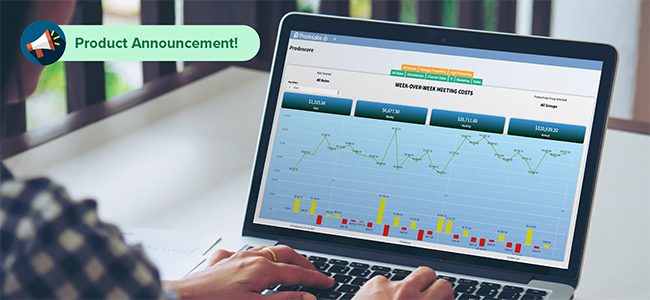Is it Ethical for Employers to Monitor Employees?
Modern workplaces have a lot of tech tools at their disposal, and some are more controversial than others. More and more US employers are using Employee Productivity Monitoring (EPM) software to monitor their workers, with a recent report from ExpressVPN claiming that 80% of employers are tracking their employees online.
Workplace surveillance may be a growing trend, but it can create controversy. No-one likes the idea of organizations “snooping” on their workforce; on the other hand, employers have legitimate concerns. With the rise of remote working and flexible schedules, it’s easier for unscrupulous employees to take advantage - leading to ‘productivity paranoia’ among managers, and makes it harder for leaders to understand how employees work, to replicate positive behaviors, and mitigate ineffective ones for example.
Ethical employers have a responsibility to find a middle ground, using employee productivity software in a way that respects their employees’ privacy and addresses their concerns while giving managers the visibility they need into their team’s activities that will drive success.
What is EPM and why use it?
Employee productivity monitoring simply means capturing employee activity throughout the work day. It can range from keeping tabs on employee activity both on and offline, or limiting supervision to the use of online company tools such as email or project management applications.
However a company uses EPM, they usually have the same goals in mind - to catch ineffective behavior and maximize productivity.
Catching employees in the act
Untrustworthy employees are bad news for their colleagues, their managers, and their organization as a whole. But it’s not always easy to identify them. EPM is designed not only to catch bad actors but also act as a deterrent to stop others from following in their footsteps.
Monitoring activity helps employers spot and prevent:
- Time theft - where employees are taking too many breaks on company time
- Quiet quitting - when workers disengage before resigning
- Over-employment - employees who are working multiple jobs at once
- Burnout - overwhelming and unmanageable workloads
Streamlining workflows
Ethical employers don’t just use EPM to prevent bad behavior, they also use it to help their employees work more efficiently and improve their performance.
Monitoring how their team works allows managers to delegate more effectively, seeing who is overburdened and who has more time in their day. It also gives team leaders the ability to identify their star performers so they can reward them for their work.
Preventing burnout
The most conscientious employees are often the ones least inclined to speak up. If someone is overburdened and under pressure, managers can use employee productivity tracking to see right away that they’re struggling and take steps to resolve the issue before that employee suffers from burnout.
Keeping track of remote teams
The transformative shift towards more remote and hybrid working has left organizations playing catch-up with the changing needs of their employees. With so many offices now operating in the cloud, it’s harder than ever to manage collaboration and monitor project delivery.
EPM gives managers a window into these virtual workflows with an easy way to see who’s online, what tools they’re using, who they’re working with, and more.
Are EPM solutions ethical?
EPM can enhance workflows, improve employee engagement, and boost productivity. But is it ethical? The short answer is, it depends.
It depends, firstly, on how EPM is implemented in your organization and, secondly, on what EPM software you use.
It’s extremely important to introduce any monitoring solutions with full transparency around why your company is using EPM and how it works. This helps build trust and respect. Give your employees a chance to answer questions and share feedback so everyone is fully briefed on your EPM policies.
You also need to decide which EPM tool is most appropriate. There are a lot of options on the market, and some are more invasive than others. Tools that monitor keystrokes and/or watch screens are definitely a threat to your employees’ privacy and will likely destroy any trust and goodwill you’ve built with your workforce. But this kind of monitoring isn’t just unethical, it’s also unproductive as it encourages micromanaging.
Employers should choose an unobtrusive EPM solution like Prodoscore which works in the background to collect data around how employees use their company’s cloud-based tools.
Prodoscore won’t monitor an employee’s personal web use, collect private information, or access non-work related activity. It simply looks at how and when workers are interacting with business applications and collates that data to generate actionable metrics around how individuals, teams, and departments operate.
These simple, but crucial, performance metrics are easily interpretable to both employees and management, making Prodoscore the most ethical form of workplace monitoring available.

